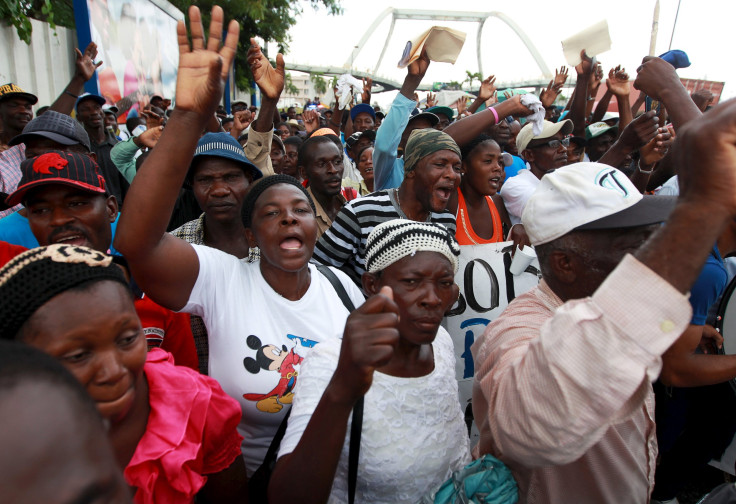Haiti, Dominican Republic Migration Crisis Continues As Officials Ask International Leaders To Intervene

Haiti criticized the Dominican Republic’s treatment of more than 200,000 undocumented Haitian immigrants within its borders Wednesday and asked international officials to intervene. The two nations have been embroiled in a migration crisis since 2013, when the Dominican Supreme Court stripped much of the nation’s Haitian population of its citizenship.
“Haiti comes to the Americas to urge the Dominican Republic to come to its senses. Haiti does not come to ask for mercy, it comes to protest the treatment of its nationals in the Dominican Republic,” Haiti Foreign Minister Lener Renauld said in a statement to the Organization of American States, a group which promotes regional cooperation, according to Venezuelan news agency TeleSur.
The Organization of American States planned to send a delegation this month to find a “long-term solution that regularizes the legal state of immigrants” in Haiti and the Dominican Republic, which are located on the same island and share a border. Dominican Republic officials condemned Haiti’s accusations.
“Neither can we accept the cynicism of nations that pretend to denounce with hyperbole and exaggeration what they are accustomed to do to immigrants in their own territories,” Dominican Republic ambassador Pedro Verges told the Organization of American States.
Hundreds of thousands of Haitians living in the Dominican Republic instantly lost their legal status in 2013 after the Dominican court ruled individuals born to undocumented immigrants would not automatically receive citizenship. The ruling retroactively applied to anyone born in the country since 1929. The decision drew a harsh rebuke from the United Nations, who called on the Dominican Republic to reconsider.
“We urge the Dominican Government to take all necessary measures to ensure that Dominican citizens of Haitian origin are not deprived of their right to nationality in accordance with the country’s international human rights obligations,” said Ravina Shamdasani, a spokesperson for the UN’s Office of the High Commissioner for Human Rights.
© Copyright IBTimes 2024. All rights reserved.












